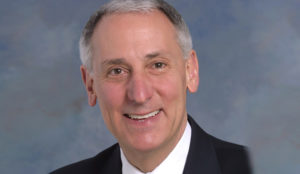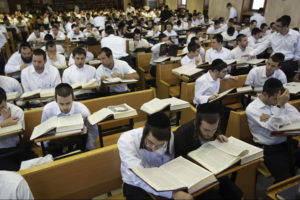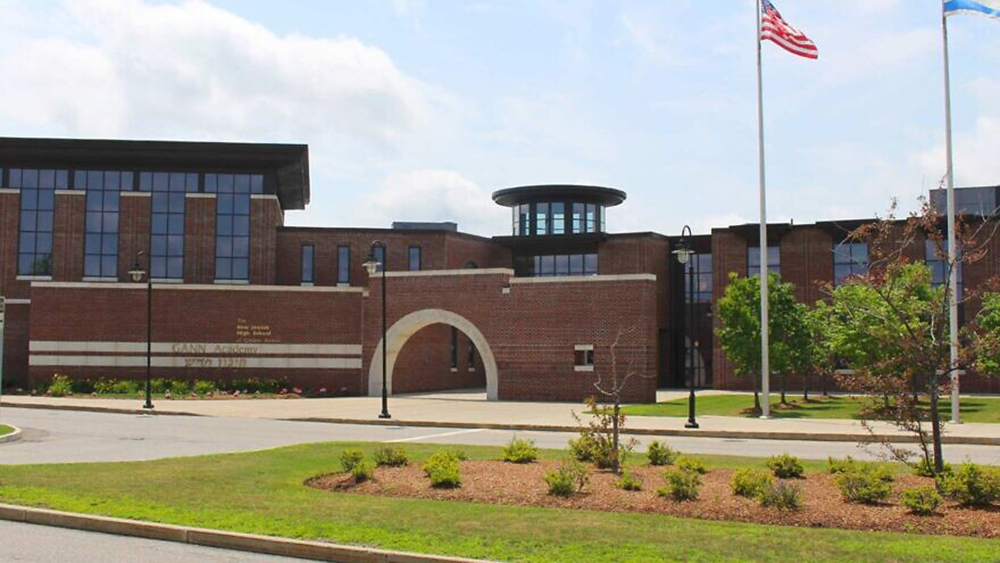Jewish federations, denominations, day schools, Hebrew classes and synagogues are adapting to weeks and possibly months of social distancing and quarantines due to the pandemic.
By: Faygie Holt
Across the United States and countries worldwide, schools are shuttering, events are being postponed, synagogue services are canceling or severely curtailing services, local communal resources such as libraries have closed, and supermarkets are running out of supplies as people knuckle down and head inside to halt the spread of the coronavirus (COVID-19). It is in this reality that Jewish communities are searching for ways—and instituting them—to support and provide strength to their constituents.
The moves come as cases of the novel coronavirus have continued to increase with nearly 140,000 people infected worldwide before the start of Shabbat. In the United States, more than 1,260 people have been diagnosed with the virus as of Friday.
Representatives for the various streams of Judaism, along with the Jewish Federation of North America, have created webpages advising congregations and communities of how to deal with the virus. The guidelines come as rabbis, clergy and communal leaders try to reassure and provide sustenance for already jittery members, particularly those with young children, while ensuring that the elderly and others at risk remain at the top of their concerns.

Eric Fingerhut, president and CEO of the Jewish Federations of North America, told JNS, “… we are focused first and foremost on helping the most vulnerable populations, especially those isolated and cut off from community-based programs, those struggling with mental-health issues, people who are losing income and whose living situations may become compromised. Together, 146 Federations and 300 network communities support a network of social-service agencies and organizations that deliver to these populations locally and globally, and they need urgent support.”
Among those working to ensure that people have what they need is the Jewish Federation of Cleveland, where Jewish day schools are closed and some members of the local community are in quarantined.
“Caring for one another and helping to keep our community safe are the top priorities of the Cleveland Federation,” said Robert Berick, the JFC’s marketing director. “To that end, we are working closing with local agencies to ensure the vital programs and services continue with minimal disruption. Similarly, we are actively looking for new and creative ways to maintain a strong sense of togetherness and connection in a time when so many feel isolated.”
Beyond the Federation, leaders of major Jewish denominations—Orthodox, Conservative, Reform and Reconstructionist—were issuing statements and guidance to members.
Both the Reform and Conservative movements are planning to hold virtual service options so that people who are under quarantine or are immune-compromised or otherwise don’t feel comfortable being out in a group setting have a way to participate in Shabbat services.
“Live-streaming can be a literal lifeline for such community members who can’t be at synagogue physically, but still want to connect with their place of worship,” said an online post from the United Synagogues of Conservative Judaism. “When using live-streaming, it’s recommended that clergy and lay leaders acknowledge the presence of the virtual community.”
The Central Conference of American Rabbis, the rabbinic arm of the Union for Reform Judaism, urged people to utilize technology to stay in touch.
“As we collectively fight to save lives and eliminate this virus, we encourage all who are able to avail themselves of online gatherings and conventions, virtual learning and classes, live streaming of worship services, even pastoral care via telephone or video conferencing,” said the CCAR memo. “While human touch undeniably adds meaning to our relationships and our lives, these efforts are necessary to preserve our health. As Jewish tradition counsels: ‘Each of us is enjoined to guard our lives’ (Joshua 23:13) and ‘Saving even one life is tantamount to saving the entire world’ (Sanhedrin 4:9).”
Similarly, United Synagogue of Conservative Judaism (USCJ) announced online resources for members.

“USCJ, together with our partners at the Rabbinical Assembly, has compiled an extensive list of resources on our website so that synagogues can continue to serve their communities and work through this time of great concern. In the event of synagogue and religious-school closings, we have a growing list of synagogues that are using communications technology, including live-streaming for services, minyans, events and classes here so that people can stay connected from wherever they are,” said Leslie Lichter, interim CEO at USCJ.
“This is particularly important for those who are homebound or under quarantine, the elderly or disabled. USCJ is leveraging the power of live-streaming, too, and will broadcast innovative programs such as a USY Alumni Virtual Havdalah service (March 14) and a USY virtual hangout, ‘Connecting While Disinfecting’ (March 15), as well as informative webinars on topics such as ‘Caring for Our Communities and Ourselves’ and the process of live-streaming. The USCJ team, including our synagogue consultants, are fielding inquiries and providing support as needed.”
The leadership of the Orthodox Union and the Rabbinical Council of America, which represent many Modern Orthodox congregations, said in a joint statement on Friday afternoon: “The measures that this pandemic have forced us to take are exceptionally painful. We are concerned for the threat to our health, and we are deeply pained by the absence of Torah and tefillah [‘prayer’] from so many of our shuls. We encourage everyone to redouble their efforts in these areas and to seize this challenge as an opportunity to create in our own homes a presence of meaningful tefillah and shared Torah study.”
‘Please intensify your prayers’
In a joint letter to the Los Angeles Modern Orthodox community, the rabbis at four major synagogues announced that they were closing their doors temporarily.
“Please note that it is with a very heavy heart that we are taking this unprecedented action. We are doing this only because of the compelling nature of the circumstances and the halachic [Jewish law] mandate to protect our health as our most important priority,” they wrote, adding that now is a time for “introspection and reflection. Please intensify your [prayers], and pray that all those who are ill will be healed, and that our community will be shielded from any harm.”
Similar letters were sent to congregants in Modern Orthodox communities in the Mid-Atlantic and Northeast. Noting that a cancellation of services means that mourners who are reciting Kaddish for a loved one will not be able to do so, Jews in areas where services are continuing as scheduled have offered to recite the prayer on their behalf. (The Chabad-Lubavitch movement has launched an online page to ensure that the mourner’s Kaddish be said in synagogue.)

In Washington State, which has been extremely hard hit from the coronavirus, at least one group is taking Havdalah, the closing Shabbat service, virtual. URJ’s Camp Kalsman will be hosting a Zoom online Havdalah gathering early on Saturday evening on the West Coast.
Similarly, United Synagogue Youth, a division of USCJ, will host a USY Alumni Virtual Havdalah Service for its alumni on Saturday evening that will include a service, music, and a virtual hangout and discussion with Rabbi Joshua Rabin, USY’s senior director of teen engagement.
“While we can’t be together in body, we can definitely be together in spirit!” USY stated in its notification.
Jewish community centers like the Weinstein JCC in Richmond, Va., are also closed. Conferences and meetings have been canceled or postponed.
After initially canceling its conference in Baltimore, the Foundation for Jewish Camp decided to move to an online conference, complete with plenaries, breakout sessions, networking opportunities, a “virtual campfire” and an online “hallway,” where attendees can connect and collaborate outside of formal sessions. Dubbed “Leaders Assembly 202.0,” it will be held on Monday, March 16.
“Leaders Assembly 202.0 gives us an effective platform to share resources that are more critical than ever, especially during this current challenging situation” explains Jeremy J. Fingerman, CEO of FJC. He also thinks the online format “will enable an even broader spectrum of participants.”
‘We’ve had our fair share of adversity’
For many families, next week will represent a major change in routine as millions of children will be home from school for the end of March, or possibly the foreseeable future, because of mandatory or voluntary school closures.
In some cases, Jewish day-school students are not expected to return to school until after the Passover holiday. Many of the schools have or will offer virtual classrooms to ensure their students can continue to learn.
The leaders of Baltimore-area Orthodox schools wrote in a joint statement, “The medical situation is continuously changing, but we will stay closed as long as medically indicated. As always, the safety of our students, staff and every member of our community is our highest priority. While home, we urge parents to remain vigilant in making sure that their children are not in any group settings and should avoid public areas unless absolutely necessary. This is a very severe step being taken for community safety to reduce disease transmission. It will only be effective if parents remain vigilant.”
The Jack M. Barrack Hebrew Academy in the Philadelphia area, which will be closed all month, will institute virtual learning on March 18. As head of school Sharon Levin noted, “a parent in our community let me know about this interesting historical fact: In 1665, the University of Cambridge temporarily closed due to bubonic plague. Isaac Newton had to work from home, and he used this time to develop calculus and the theory of gravity.”
Meanwhile, at the Gann Academy in Massachusetts, high school students participated in a pre-Shabbat sing-along as they marked the last day in school before shifting to an online model starting on Monday.
In a Facebook posting of the musical interlude, the school wrote, “Despite the uncertainty and anxiety felt by many of our students, it was such a treat to be greeted this morning with the sounds of peace and Shabbat.”
In Houston, where the Jewish community has had to deal with severe incidents of flooding in recent years, the Jewish federation began “ramping up” its readiness on Thursday. It has limited in-person events to no more than 50 people and is coming up with more ways to conduct programs online. Federation is also working with partner agencies to ensure that everyone in the community has what they need—whether children at home or homebound seniors.
“We’ve had our fair share of adversity, and we have developed a good system of communicating within our Jewish community as situations develop,” said Taryn Baranowski, chief marketing officer of the Jewish Federation of Greater Houston. “We’ve all been in communication and seen disruptions, but we know this is something we have to work through, and we will come together back as a community in ways that we are used to.”
As JFNA’s Fingerhut stressed, “Our work is rooted in community. We create opportunities for people to connect. That is what Jewish life is about. With the coronavirus threatening in person togetherness, we now need to find new ways to do that. Sadly, we have a lot of experience with crisis, and we know that beyond their immediate needs, recovery from this global event is likely to take some time.”
(JNS.org)




